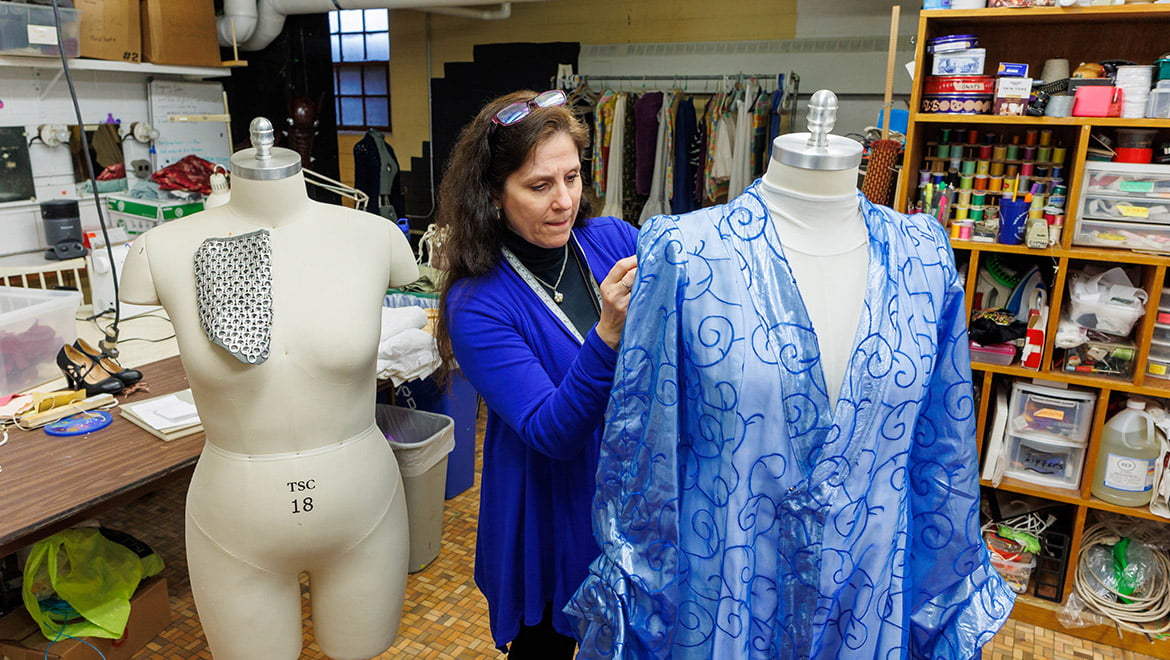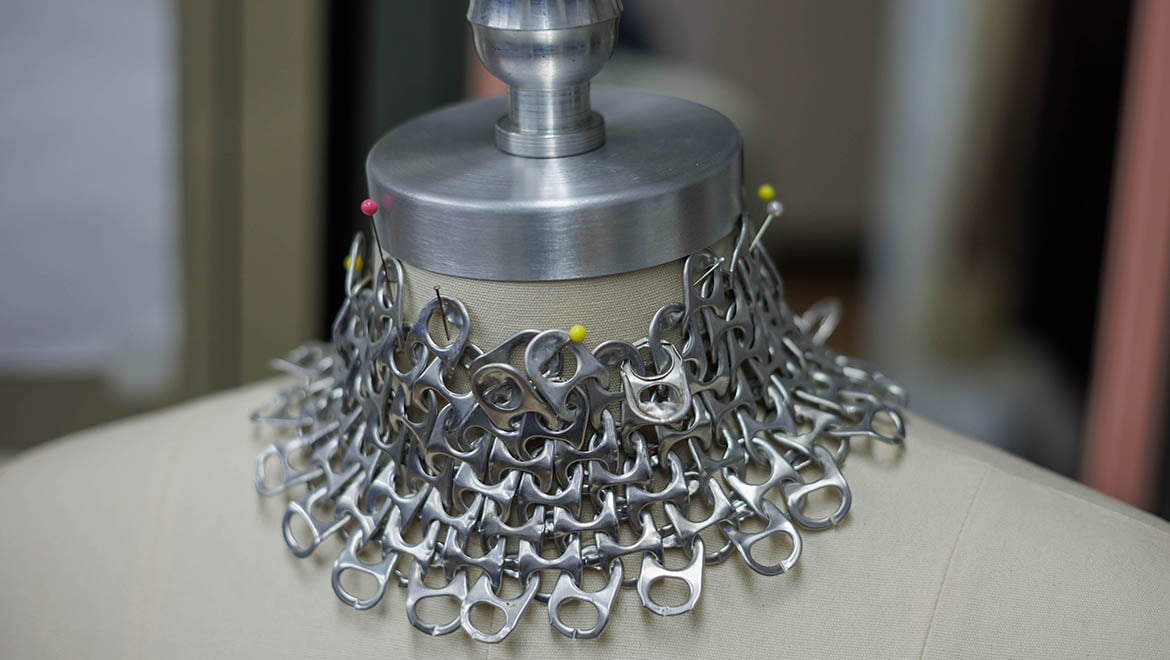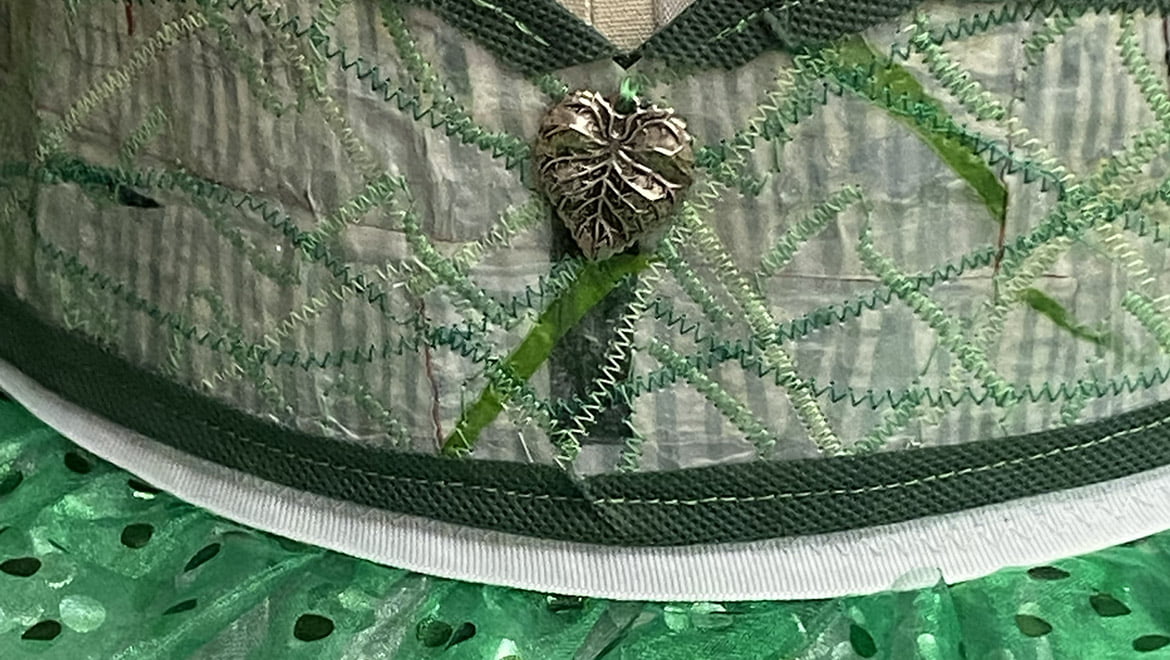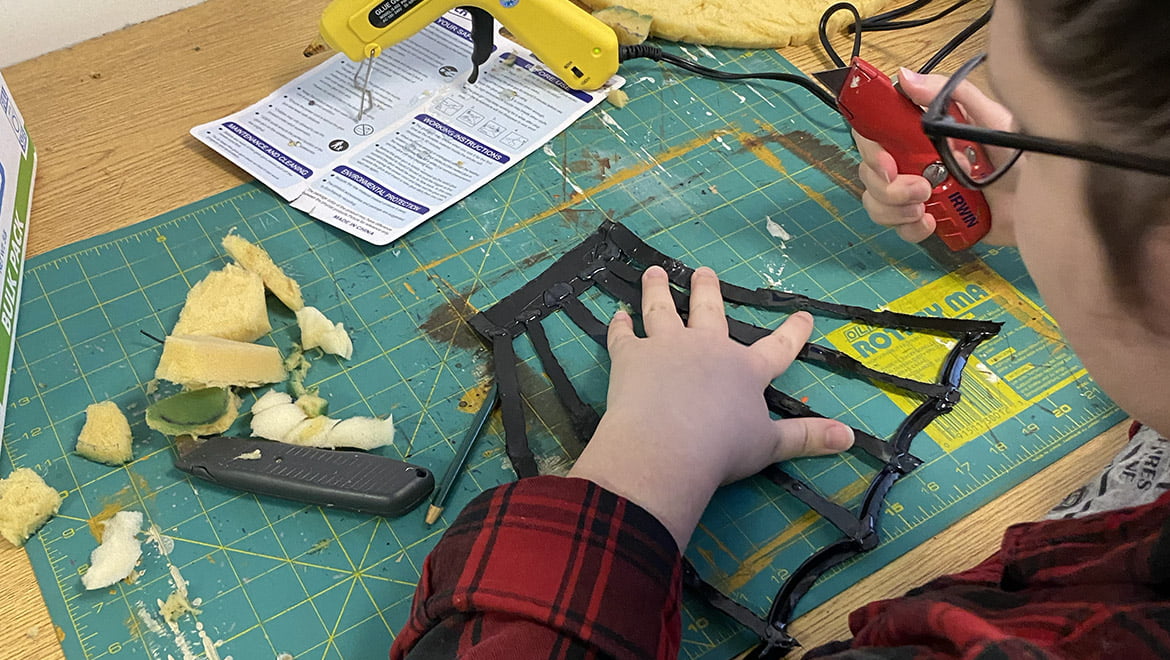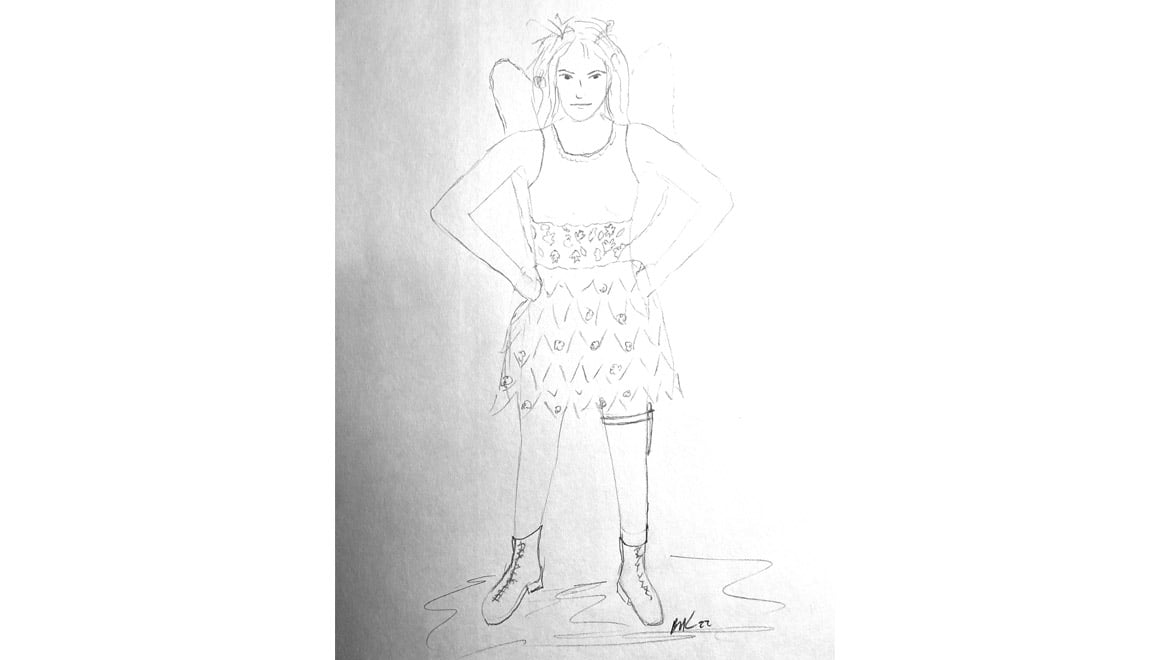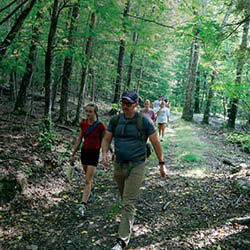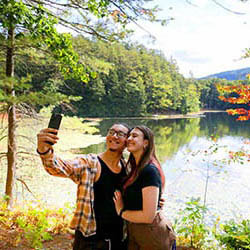Setting the Stage for Sustainability
by Libby Cudmore
After more than 30 years as a costume designer and shop manager, Barbara Kahl has learned that success is often all about playing the hand one is dealt. She put that knowledge to great use last summer during a trip to Vancouver, British Columbia.
“I received a Hartwick Faculty Research Grant to study Indigenous dyes and fabrics,” said the assistant professor of Theatre Arts, “but when I arrived, the workshop had been canceled.”
With three days to spend on the Sunshine Coast, Kahl decided to take a walk on the beach, where she began observing the seaweed that washed up on shore. Since she received the grant to study seaweed usage in dye and fiber, she gathered several different types.
“I took some back to my hotel room and boiled it to see if I could get any color,” she recalled. “Using the fabric samples I brought with me, I got green, brown and beige.”
With access to safe water a growing global concern, Kahl worried that using otherwise potable water in dyeing is a waste of precious resources.
“When you work with dyes, often you have to use salt to help it set,” she explained. “Water is going to be a major problem in the future and we’re using that to dye fabric. I want to look at how we can use seawater and seaweed in a dyeing system instead.”
Additionally, plant-based dyes also require water to grow.
Kahl’s research is just one piece of her commitment to increasing sustainability in theater. Last year, she received a Winifred Wandersee Scholar-in-Residence grant for designing eco-friendly, renewable and recycled costumes for their Spring 2022 production of Qui Nguyen’s She Kills Monsters.
“What if I were to create shows in which a minimum of 50 percent of the materials were upcycled?” she wrote in her Wandersee grant application. “What if I could design and build costumes for a production with over 80 percent of the materials coming from the recycling/up-cycling of materials that, in many cases, would be thrown away?”
She received the grant and got to work.
Amazon gift bags became a skirt. Pull tabs from soda and beer cans morphed into chainmail. Catchers’ shin guards and batting helmets created headpieces for the mythical, goblin-like characters known as kobolds. Wild goldenrod, gathered from her farm, was used for yellow dye.
“Our question is always about what’s out there that we can always use?” she said.
Even when it came time to purchase new materials, she found ways to conserve and reuse.
She purchased leather from FABSCRAP, which buys and sells leftover fabrics from fashion designers that would otherwise be destined for the trash heap.
It’s not just good for the environment; it’s good for her budget.
“If we’re doing a senior thesis project that has a $500 budget, it goes a lot further with recycled materials,” she advised.
She’s applied for another Faculty Research Grant to continue her research into dyes using seaweed from the waters of Maine, Long Island, Maryland and North Carolina. She will also attempt to process seaweed for fiber sources.
If all goes well, she will present her findings at the Textile Society of America’s biennial symposium and submit them to the journal Dress, published by the Costume Society of America.
“The only way to stop global warming – and save ourselves and this planet – is for each one of us to take a hard look at how we live and then make a positive change,” she implored. “We do not have the luxury of wondering when ‘somebody’ will do something. The ‘somebody’ is me. It is you. And the ‘when’ is now.”
